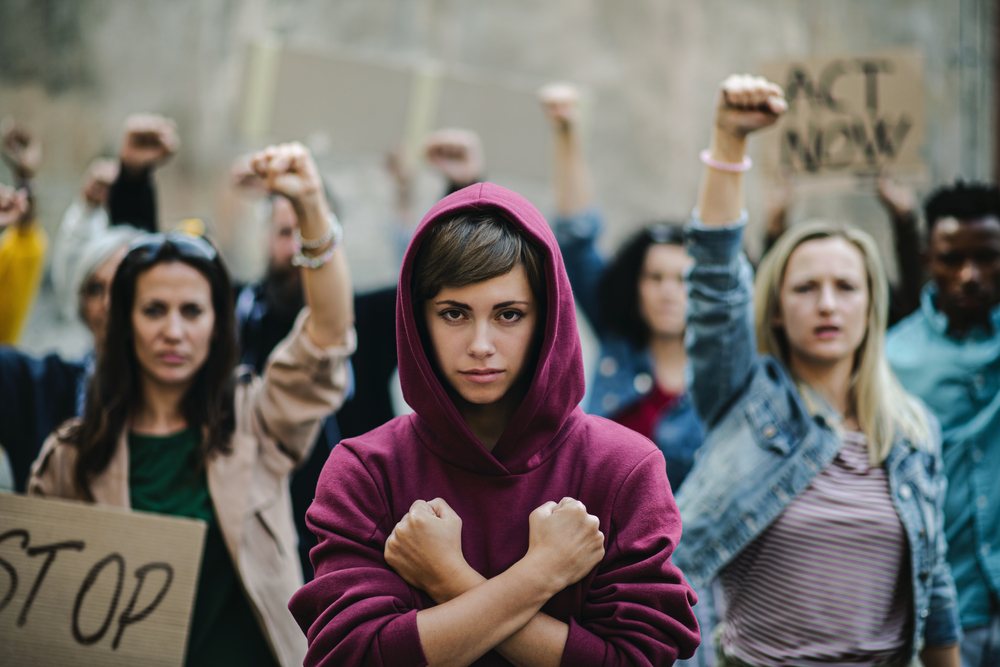Human Rights and Social Justice are implied simultaneously in most of the field. Human Rights and Social Justice are two basic elements one should know while executing any decision. These two are paramount in any society. Regardless, of nationality, where they live, gender, ethnic background, skin color, religion, language, or other characteristics. Human rights are rights inherent to all human beings.
Fair and just interactions between individuals and equitable relationships between individuals and society. The distribution of wealth, opportunities, and privileges within a society comes in the shadow of Justice. It is a key principle for achieving successful and peaceful cooperation inside and between nations. Gender, age, race, culture, and ethnicity or disability are considered obstacle that needs to be eliminated from society to be recognized as a successful nation.
On the other hand, human rights are the basic privileges that everyone has simply by being human. the foundation of freedom, justice, and peace in the world is the recognition of the inherent dignity, and equal inalienable rights of all members of the human family. While social justice and human rights are different concepts and not interchangeable, social justice and human rights are closely related.
The Universal Declaration of Human Rights includes economic, social, and cultural rights including the right to health care, job stability, and education all included in this stance. These rights were incorporated into the International Bill of Human Rights and added to the International Covenant on Economic, Social, and Cultural Rights (ICESCR) in 1966.
The quest for social justice worldwide is deeply rooted in the principality of international human rights laws. These laws are established through treaties, where every individual enjoys the freedom of fundamental rights and has access to basic rights. With this symbiotic relationship between international human rights laws and social justice, we can see how these legal systems help build a fairer and inclusive global society.
What are the human rights of social justice?
Human rights of social justice are quite understandable as these two are the building blocks of any society. These rights encompass the right to live, the prohibition against slavery, torture, and unjust arrests, equal treatment under the law, freedom of movement, peaceful assembly, and participation in government.
Five Principles of Social Justice
The five principles of Social Justice are paramount to understanding the concept better, these principles are recognized as the backbone on which Social Justice relies.
1. Access to Resources
The first and most important principle to focus on is Access to Resources. Every individual in a society has the right to share and enjoy a basic right to Access resources. Access to resources is a key aspect of social justice and refers to the extent to which different socioeconomic groups receive equal access to ensure everyone has a fair start in life. The basic resources that must be provided to individuals are healthcare, food, shelter, education, and recreational opportunities, however, there are often disparities in access to these services.
2. Equity
Equity means providing people with resources tailored to their specific needs and socioeconomic status to move towards similar outcomes. It contrasts with equality, where everyone is offered the same resources to reach the same goal.
It is worth understanding that what is equal is not always fair, due to the more advanced needs of different individuals and groups. Social justice, integrated with addressing equity issues, may involve creating policies that help individuals to overcome systemic obstacles.
3. Participation
Participation means that everyone in society has the chance to express their thoughts, or feeling towards anything and have a role in any decision-making that affects their livelihood and standard of living. Social injustice occurs when a small group makes decisions for a large group, leaving some individuals without permission to share their views regarding anything happening around them.
4. Diversity
Recognizing and valuing cultural differences is crucial because policymakers are often better able to make policies that take into consideration differences that exist among different societal groups.
It is important to understand that some groups encounter more barriers in society, than others, by acknowledging these inequalities, policymakers and civil servants can more effectively work to shape opportunities for marginalized or disadvantaged groups.
5. Human rights
The most paramount principle of social justice, which plays a crucial role in building the foundation, is “Human Rights”. Social Justice and Human Rights are interchangeable, and it is impossible to imply one while ignoring the other. Human rights are essential for societies that honor the civil, economic, political, cultural, and legal rights of individuals, and governments, organizations, and individuals should be held accountable if they do not protect these rights for the sake of the betterment of society.
Role of Justice in Human Rights
Justice plays a crucial role in human rights by safeguarding enforcement, and accountability of rights, that are essential to human dignity and freedom. Justice is a foundation of human rights, ensuring that the principles of fairness, responsibility, and equality are upheld in society.
Theory of Justice
In 1971, American philosopher John Rawls published "A Theory of Justice," It attempted to resolve the problem of distributive justice in society. Rawls opposed traditional philosophical arguments on what makes an institution just and how social actions and policies should be justified. The utilitarian argument holds that society should pursue the greatest good for the greatest number, of people, which can lead to the oppression of minority groups by the majority.
Rawls attempted to establish an unbiased version of social justice, based on the social contract approach, as a response to utilitarian arguments. This theory suggests that society operates in the form of agreement with all those within the society. This concept traces back to the 18th-century philosophical and intellectual movement called the Age of Enlightenment.
The stance suggests that individuals in a society have consented to surrender some of their freedoms and accept the authority of a ruler in return for the preservation of social rights and the protection of their remaining rights.
“Rawls advocates for the concept of justice as fairness, and he identifies social justice as the first characteristic of social institutions”.
Frequently Asked Questions
1. Who is the father of justice theory?
Philosopher John Rawls proposed the theory of justice, to develop a nonutilitarian justification of a democratic political order consisting of fairness, equality, and individual rights.
2. What are the types of Justice?
There are four different types of justice:
1. Distributive (knowing who gets what)
2. Procedural (knowing how fairly people are treated)
3. Retributive (based on punishment for wrong activities)
4. Restorative (which tries to restore relationships to "rightness.")
3. What is the theory of Human Rights?
Every human being has certain rights that derive from their nature and not from their government or its laws, this theory was initiated by John Locke in 1689.

.jpg)




